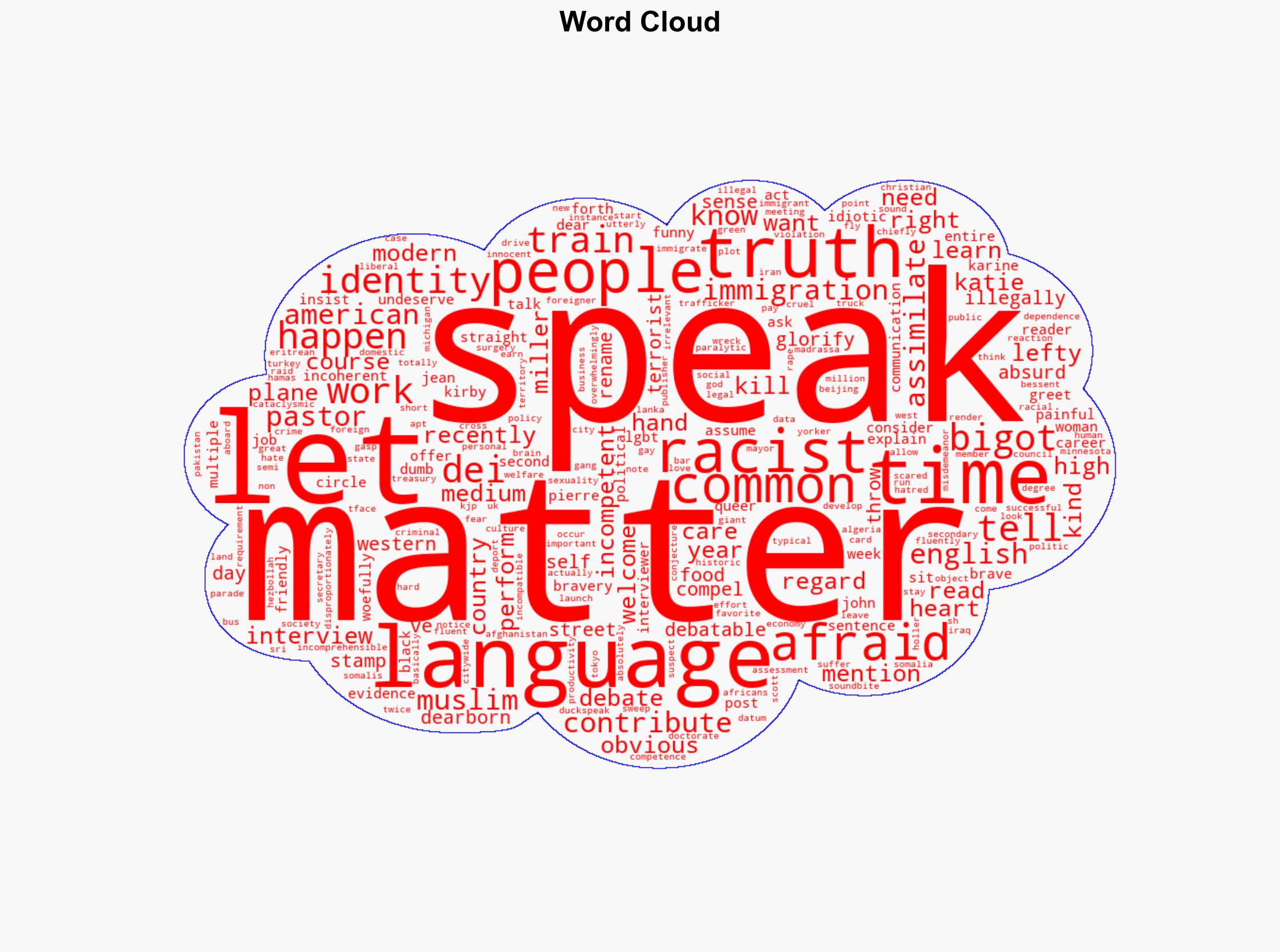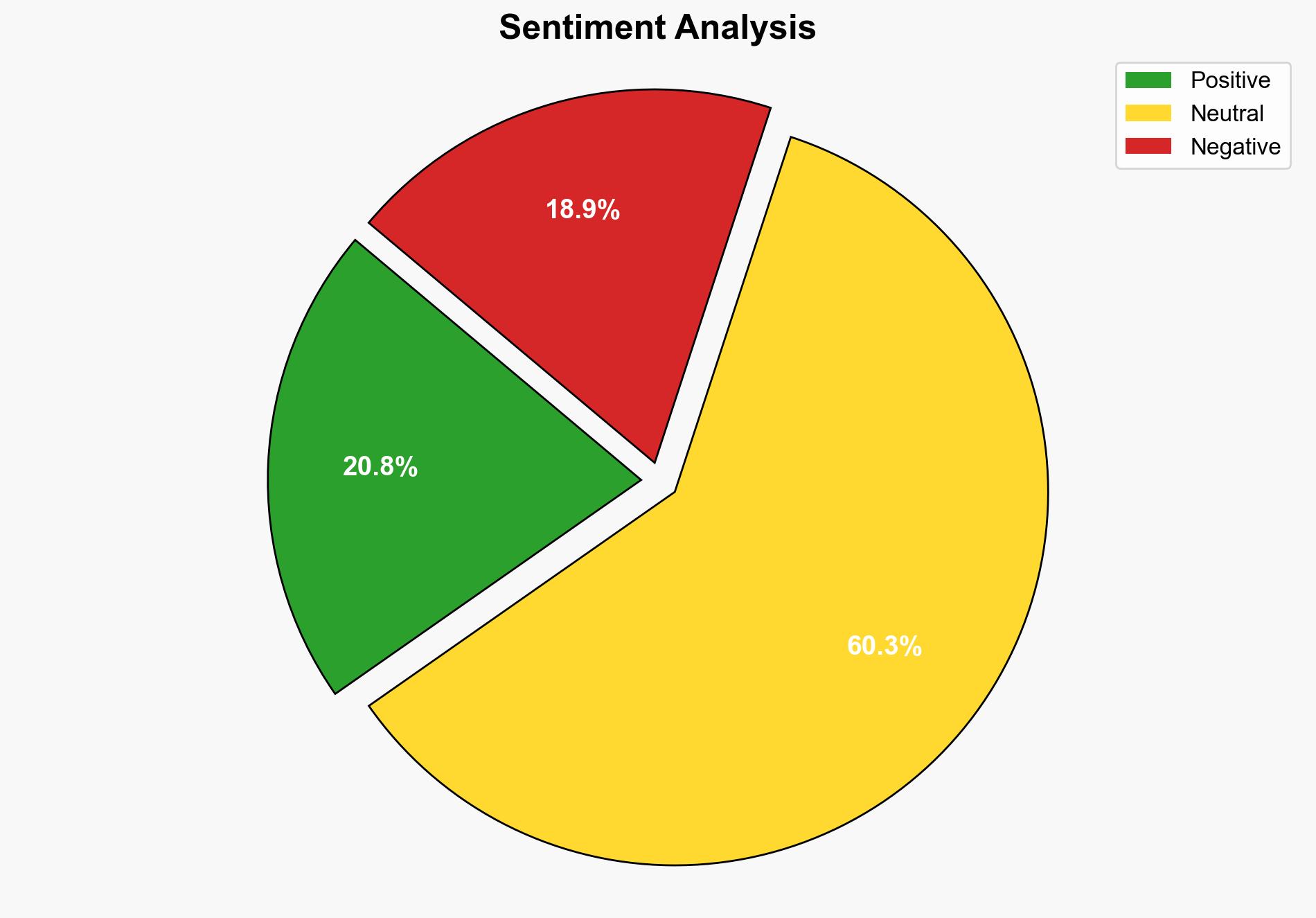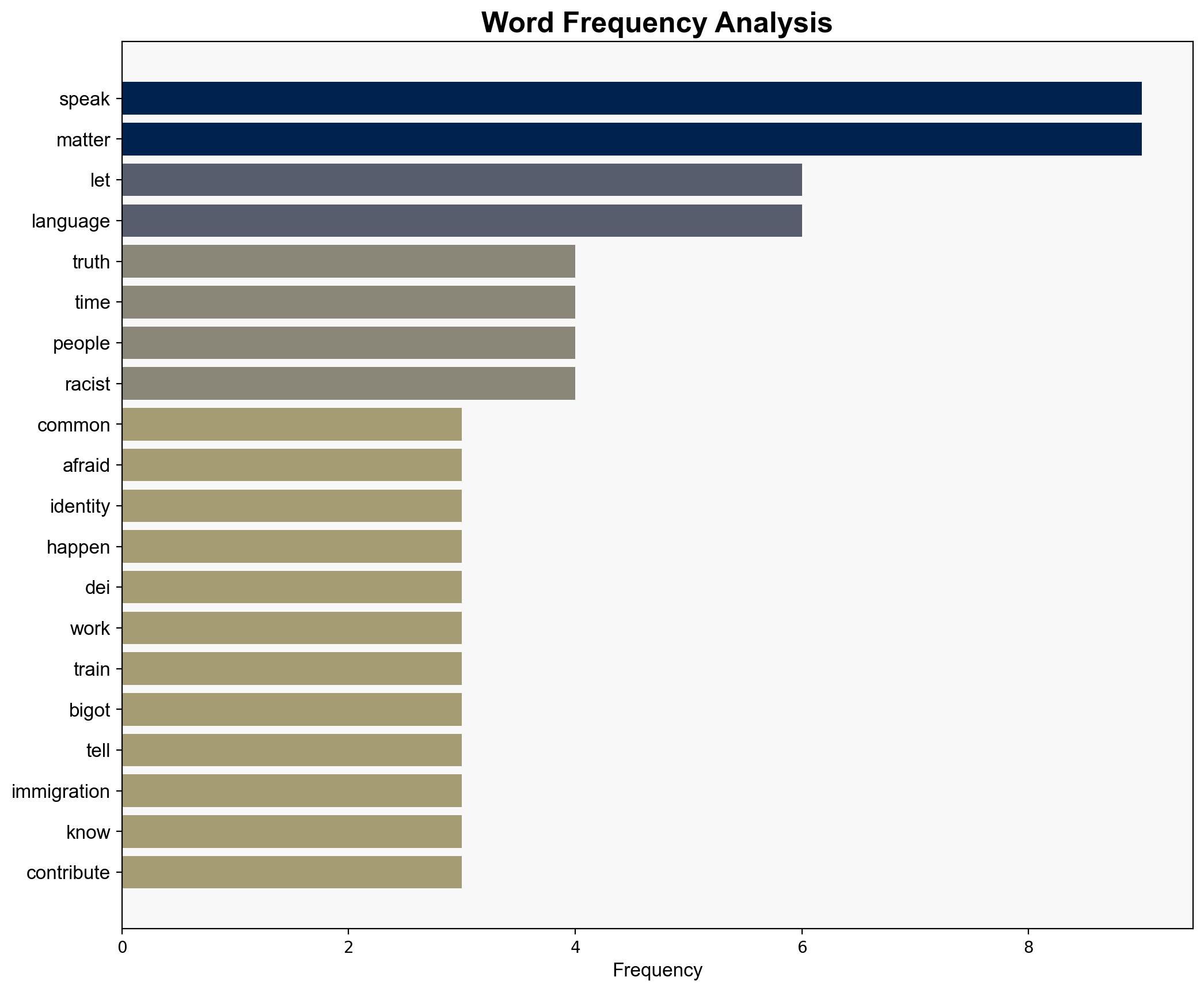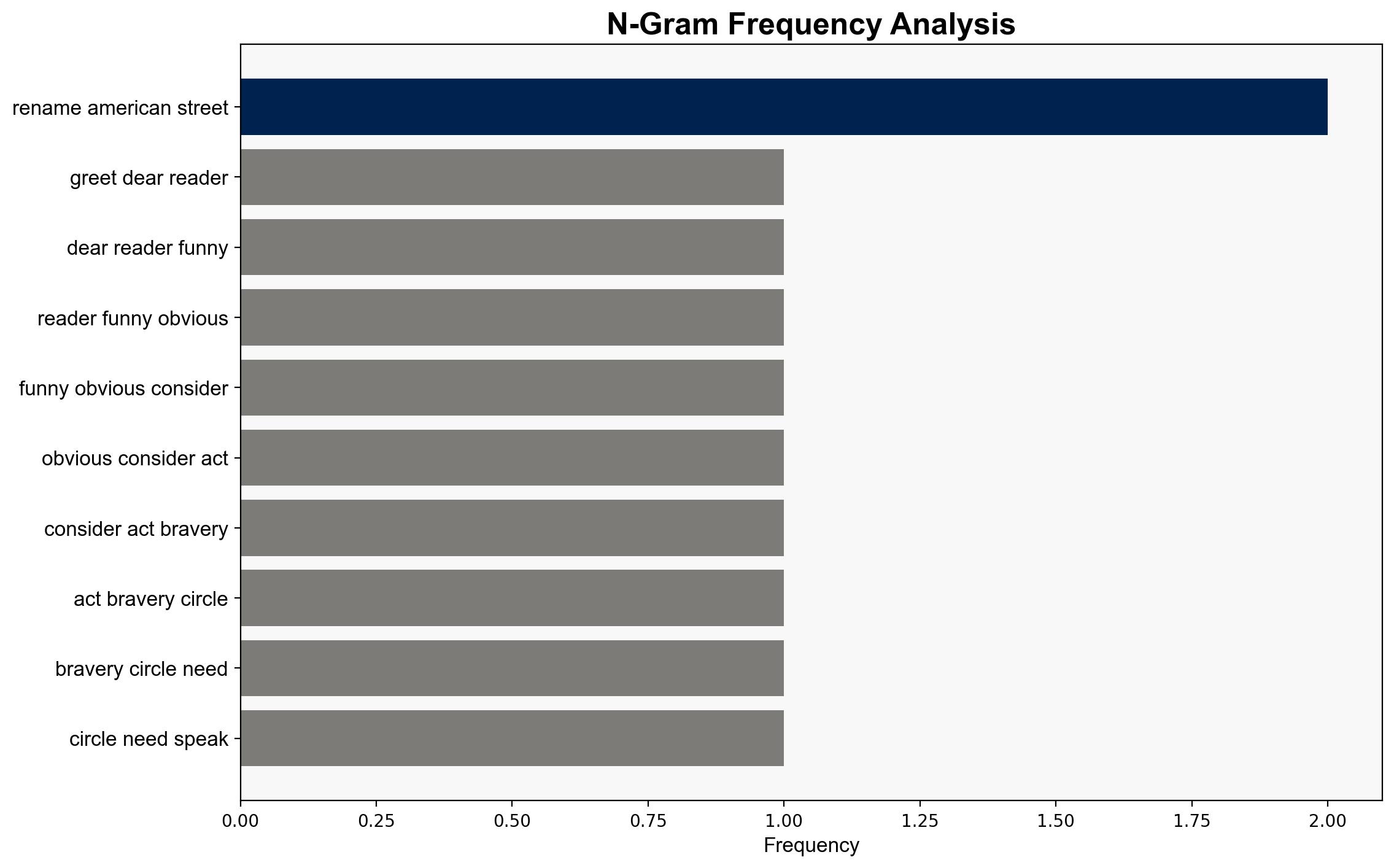INGERSOLL They Might Call It Racism Or Bigotry But I Call It Common Sense – The Daily Caller
Published on: 2025-10-29
Intelligence Report: INGERSOLL They Might Call It Racism Or Bigotry But I Call It Common Sense – The Daily Caller
1. BLUF (Bottom Line Up Front)
The analysis suggests a strategic judgment that the article reflects a strong ideological stance against diversity, equity, and inclusion (DEI) policies, with a high confidence level that this perspective is intended to resonate with a specific audience. The most supported hypothesis is that the article aims to influence public opinion by framing DEI initiatives as ineffective and potentially harmful. Recommended action includes monitoring the spread of similar narratives to assess their impact on public discourse and policy.
2. Competing Hypotheses
1. **Hypothesis A:** The article is a genuine critique of DEI policies, arguing that they are ineffective and potentially harmful to societal cohesion and national security.
2. **Hypothesis B:** The article is primarily a rhetorical device aimed at reinforcing existing biases among readers, using sensational language to provoke emotional responses rather than presenting a balanced critique.
Using the Analysis of Competing Hypotheses (ACH) 2.0, Hypothesis B is better supported due to the use of emotionally charged language and lack of empirical evidence to substantiate claims, suggesting an intent to sway opinion rather than inform.
3. Key Assumptions and Red Flags
– **Assumptions:** The article assumes that DEI policies are inherently flawed and that identity factors such as race and sexuality are irrelevant to competence.
– **Red Flags:** The absence of data or studies to support claims about DEI ineffectiveness and the use of anecdotal evidence raise questions about the article’s objectivity.
– **Potential Bias:** The article may reflect confirmation bias, selectively presenting information that aligns with preconceived notions about DEI.
4. Implications and Strategic Risks
The propagation of such narratives could polarize public opinion, potentially influencing policy decisions and societal attitudes towards immigration and diversity. There is a risk of escalating tensions between different demographic groups, which could manifest in social unrest or policy backlash. The economic implications include potential impacts on workforce diversity and innovation.
5. Recommendations and Outlook
- Monitor the dissemination of similar narratives across media platforms to assess their influence on public opinion and policy.
- Engage in public education campaigns to provide balanced perspectives on DEI and its impact on society.
- Scenario Projections:
- Best Case: Increased public awareness leads to more informed debates on DEI policies.
- Worst Case: Heightened societal division and policy regression on diversity initiatives.
- Most Likely: Continued polarization with incremental policy adjustments based on public sentiment.
6. Key Individuals and Entities
– Karine Jean-Pierre
– Katie Miller
– John Kirby
– Scott Bessent
7. Thematic Tags
national security threats, societal cohesion, public opinion, diversity policies




